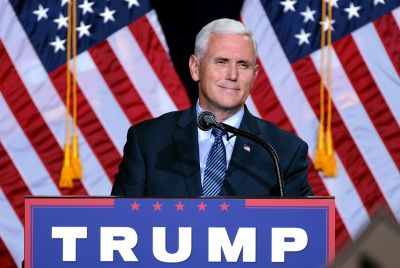Kuwait's Emir Sheikh Sabah Dies In US Hospital At 91
Kuwait's emir Sheikh Sabah al-Ahmad Al-Sabah, architect of the nation's modern foreign policy and mediator in some of the worst crises to grip the Gulf, died on Tuesday at the age of 91.
The government quickly named his half-brother, 83-year-old Crown Prince Sheikh Nawaf al-Ahmad Al-Sabah, as his successor.
Sheikh Sabah had earned a reputation as a shrewd, unshakeable leader who helped steer his country through the 1990 Iraqi invasion, crashes in global oil markets and upheavals in parliament and on the streets.
"With great sadness and sorrow, we mourn... the death of Sheikh Sabah al-Ahmad al-Jaber Al-Sabah," Sheikh Ali Jarrah Al-Sabah, minister in charge of royal affairs, announced in a televised statement.
The government declared a 40-day period of national mourning.
The United Nations described the late emir as a "distinguished statesman and an outstanding humanitarian" as it led tributes which came from across the Middle East's political divides.
"Sheikh Sabah al-Ahmed earned international recognition for his wisdom, generosity and achievements in state-building and preventive diplomacy," UN Secretary-General Antonio Guterres's spokesman said in a statement.
He had made "a personal contribution to regional stability and humanitarian assistance which will long be remembered", British Prime Minister Boris Johnson said.

The emir, who had ruled the oil-rich Gulf state since 2006, died in the United States where he had been receiving hospital treatment after undergoing surgery in Kuwait City. Details of his illness were not disclosed.
In his absence, Sheikh Nawaf -- an elder statesman who has held high office for decades including the defence and interior ministries -- had served as acting ruler. He is to be sworn in on Wednesday.
The 15th leader in a family that has ruled for over 250 years, Sheikh Sabah weathered Kuwait's crises with shrewd judgement and an iron fist.
As the country's top diplomat for nearly four decades, he fostered close ties with the West, most notably the United States which led the international coalition that freed Kuwait from Iraqi occupation in 1991.
He later emerged as mediator between the Gulf Cooperation Council and Iran, and between Saudi Arabia and Qatar following Riyadh's 2017 decision to cut ties with Doha.
In a sign of the respect that the emir commanded across the region, the UAE, Egypt and Qatar all declared three days of mourning.

"The Arab and Muslim world has lost one of its most valuable leaders," Egypt's President Abdel Fattah al-Sisi said in a tweet.
Regional power Saudi Arabia said it mourned his passing, while its arch-rival Iran praised the emir's policy of "moderation and poise".
Baghdad said that Sheikh Sabah had put the Iraqi occupation in the past and supported the "new" Iraq after Saddam Hussein's rule, choosing to stand with it against "terrorism".
The Kuwaiti leader had remained deeply involved in global affairs into his old age.
"The loss of Sabah al-Ahmed will be felt deeply, both due to his prominent role as a diplomat and regional mediator and as a unifying figure at home," said Kristin Diwan of the Arab Gulf States Institute in Washington.
"Kuwaitis have appreciated his ability to keep the emirate out of regional conflicts and rivalries."
Major policy changes are not expected under his successor, even after the Gulf underwent a seismic shift with Kuwait's neighbours, the UAE and Bahrain, opting to normalise relations with Israel.
Normalisation with the Jewish state is highly unpopular among the Kuwaiti public, which largely supports the Arab world's historic position of demanding a resolution of the Palestinian cause before giving diplomatic concessions to Israel.
"There is no indication a future leadership would want to change Kuwait's posture," Diwan said.
Kuwait's constitution stipulates that the ruler should be a descendant of the nation's founder, Mubarak al-Sabah, but the throne has alternated between the descendants of his sons, Salem and Jaber, for four decades.
Contestants for the newly vacated role of Crown Prince include Sheikh Sabah's son and former deputy prime minister and political heavyweight Nasser Sabah al-Ahmed al-Sabah.
"Sheikh Nawaf al-Ahmed should be viewed more as a caretaker than as a watershed new leader," said Cinzia Bianco, a research fellow at the European Council on Foreign Relations.
"Behind the scenes, however, younger princes would likely continue to compete to succeed him."
© Copyright AFP 2024. All rights reserved.





















